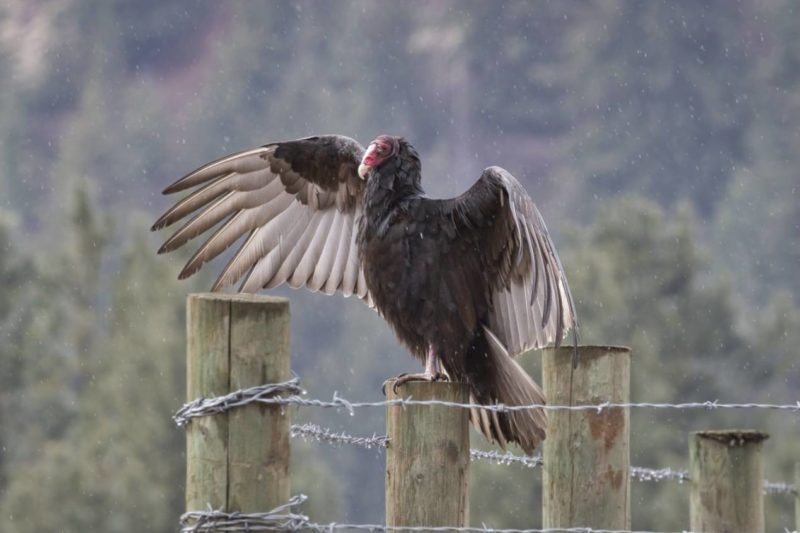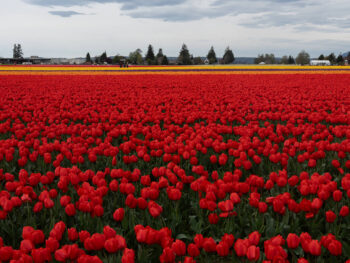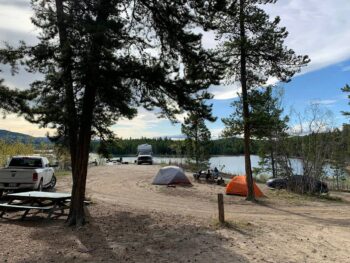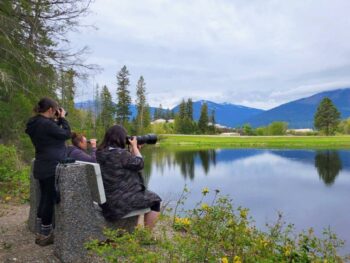Tracey Tetreau shares this captivating image taken just south of the Trail airport showing one of three turkey vultures drying out after the morning rain.
Here are some interesting facts about turkey vultures:
Society, in general, portrays turkey vultures and vultures in general, as dirty, evil, harbingers of death. In reality, these scavenging birds are actually very important for the health and success of an ecosystem.
By feeding on carrion, vultures help prevent the spread of deadly diseases. These special birds are incredibly misunderstood, and we should respect them for their importance.
Like many vultures, this species lacks feathers on their heads. Their bald heads (truly bald, not “bald eagle” bald) are quite small in comparison to the rest of their bodies.
With a wingspan up to six feet across, it’s no wonder their head looks small! Most of their feathers are dark brown, but portions of the underside of their wings are silver/grey in colour. This coloration starkly contrasts with the bright red/pink coloured heads.
These birds are actually incredibly interesting creatures. Not only are they important to both our health and the ecosystems they live in, but they have a number of odd traits as well!
Propelling Puke – It is best if you observe these scavengers from afar. If harassed, turkey vultures can projectile vomit to deter a potential danger or predator. Even young chicks can use this defense mechanism! When we say “afar,” we mean afar – these vultures can shoot their vomit up to 10 feet away!
No Nest – Shooting vomit is just one way that turkey vulture chicks protect themselves from predators. Another great way to avoid being eaten is to be really hard to get to. Vultures lay their eggs on the bare ground, but they choose bare ground in hard to reach caves and abandoned buildings. This helps keep their young out of predators’ reach.
Cooling Crap – Another very odd survival trait, vultures poop on their own legs and feet. This is actually an incredibly effective way for them to cool off in hot temperatures. The liquid poop evaporates as it dries, reducing the vulture’s body temperature.
Disease Destroyers – Before you write off vultures as disgusting oddities, hear out our last fun fact. Dead animals are a breeding ground for infectious disease, including those that can pass to humans. Vultures, all species, not just turkey vultures, have strong acid in their stomachs that destroys these toxins. By eating carrion, vultures prevent the spread of rabies, botulism, anthrax, cholera, and more.
Habitat of the Turkey Vulture
This species is extremely widespread and abundant. Because of this, you can likely see them in an immense amount of habitats and ecosystems, virtually anything they can easily fly to within their range.
Some areas that these birds frequent include grasslands, foothills, deserts, wetlands, swamps, subtropical forest, prairies, shrublands, and more. While they will live in forested areas, they tend to avoid dense vegetation. These birds will also frequent urban areas, especially busy roads that offer lots of road kill.
– Sourced from Animals.net
***
Plan your future adventures throughout the West Coast at westcoasttraveller.com and follow us on Facebook and Instagram @thewestcoasttraveller. And for the top West Coast Travel stories of the week delivered right to your inbox, sign up for our weekly Armchair Traveller newsletter!











 Courtenay fossil hunter finds ancient turtle on local river
Courtenay fossil hunter finds ancient turtle on local river